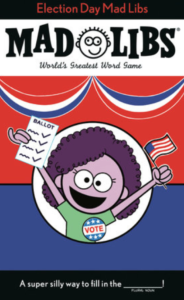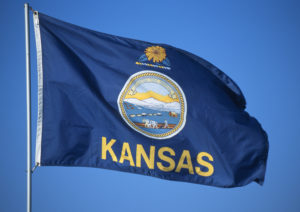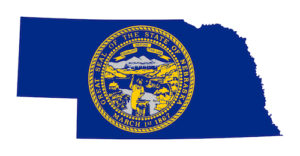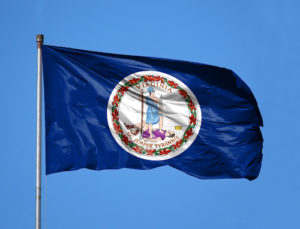In Focus This Week
‘Tis the season
Some last-minute gift suggests for the elections person on your shopping list
By M. Mindy Moretti
Electionline.org
Whether you’re looking for a gift for an elections person in your life, your staff, that one constituent who seems to spend a lot of time in your office/DMs or just yourself, here are some suggestions.
 Pocket Constitution: Knowledge is power and what better way to make sure people are informed than with a pocket-sized U.S. Constitution. And fortunately, the National Archives Store has one that comes in red, blue or black. From the site: A wonderful pocket-sized treasure, this high-quality leather bound book holds our nation’s most important documents. Making a special gift, it contains the complete United States Constitution, the Bill of Rights and every constitutional amendment. Also included are an array of documents that reveal the ideas and differing views of the Founding Fathers along with The Declaration of Independence, The Virginia Bill of Rights, Massachusetts Bill of Rights, Articles of Confederation, and Virginia Statute of Religious Freedom. You can also get less fancy versions in bulk should you want to put them on the counter at your office, just sayin’.
Pocket Constitution: Knowledge is power and what better way to make sure people are informed than with a pocket-sized U.S. Constitution. And fortunately, the National Archives Store has one that comes in red, blue or black. From the site: A wonderful pocket-sized treasure, this high-quality leather bound book holds our nation’s most important documents. Making a special gift, it contains the complete United States Constitution, the Bill of Rights and every constitutional amendment. Also included are an array of documents that reveal the ideas and differing views of the Founding Fathers along with The Declaration of Independence, The Virginia Bill of Rights, Massachusetts Bill of Rights, Articles of Confederation, and Virginia Statute of Religious Freedom. You can also get less fancy versions in bulk should you want to put them on the counter at your office, just sayin’.
 Pro-democracy: It doesn’t matter what side of the aisle you’re on, if you are an “elections geek” you’re pro-democracy. These pro-democracy shirts, which come in a variety of colors, are a great way to let folks know where you stand.
Pro-democracy: It doesn’t matter what side of the aisle you’re on, if you are an “elections geek” you’re pro-democracy. These pro-democracy shirts, which come in a variety of colors, are a great way to let folks know where you stand.
Put a ring on it: We love voting so much we wanted to put a ring on it so a couple of  years ago our incredibly talented friend Lori created a VOTE ring for us. The ring isn’t on her site any longer but she’s still making them so just reach out to her and she will be more than happy to make one for you in sterling silver or gold.
years ago our incredibly talented friend Lori created a VOTE ring for us. The ring isn’t on her site any longer but she’s still making them so just reach out to her and she will be more than happy to make one for you in sterling silver or gold.
You can put an earring (or pin) on it too!: If you’ve been around The Election  Center’s Tammy Patrick any time in recent memory you’ve probably noticed the VOTE earrings that she wears. Visit Hsu Studios—based in West Virginia—for multi-colored VOTE earrings and pins.
Center’s Tammy Patrick any time in recent memory you’ve probably noticed the VOTE earrings that she wears. Visit Hsu Studios—based in West Virginia—for multi-colored VOTE earrings and pins.
Run or walk, just vote: Elections officials spend a lot of time on their feet and these VOTE shoes sure do look comfy and are stylish as well. And for those times when you have to be a bit more public-facing in the office, these I am a Voter shoes are bit less obvious but no  less cool. (Sorry gents, but we could only find ladies voting shoes, make of that what you will.)
less cool. (Sorry gents, but we could only find ladies voting shoes, make of that what you will.)
For the future voters: Getting future voters educated and engaged long before their 18th birthday is important. PBS and Brightly both have lists of 10 recommended children’s books about voting and democracy. Of course these can be  fun for all ages, but Election Day Mad Libs (and for 2024 Mad Libs for President) are a great gift.
fun for all ages, but Election Day Mad Libs (and for 2024 Mad Libs for President) are a great gift.
Subscribe to it: We would highly recommend that you get yourself, your office or the election geek in your life a subscription to a local newspaper.
Read about it: There are a lot of elections-related books out there, but we’d be remiss without mentioning the big truth: Upholding Democracy in the Age of THE BIG LIE by Major Garrett & David Becker.
 Easy peasy: Since it’s the holidays, we wanted to keep this list on the lighter side so we didn’t include links to bulk purchases of NARCAN or panic buttons, instead, we thought, what elections office/official doesn’t need at least one Easy Button? When the button is pressed, a male voice says “That Was Easy” This great product is the perfect accessory for any desk & makes a fabulous gift! The easy button is red with the word “easy” printed in white. Don’t stress it! Press it!
Easy peasy: Since it’s the holidays, we wanted to keep this list on the lighter side so we didn’t include links to bulk purchases of NARCAN or panic buttons, instead, we thought, what elections office/official doesn’t need at least one Easy Button? When the button is pressed, a male voice says “That Was Easy” This great product is the perfect accessory for any desk & makes a fabulous gift! The easy button is red with the word “easy” printed in white. Don’t stress it! Press it!
electionline Temporary Schedule Changes
As we move into the holiday season and countdown to 2024, we’ve got a few temporary changes to our schedule.
Fridays in December — The Daily News will post by 10am on Fridays in December (Dec. 15, 22 and 29).
December 25 & 26 — The Daily News will not publish.
December 27-29 — The Daily News will post by 10 am all this week.
December 28 — There will be NO electionlineWeekly this week.
January 1, 2024 — The Daily News will not publish.
electionline Daily News Email
 What’s the best part of waking up? electionline Daily News in your inbox of course so be sure to sign up for your daily dose.
What’s the best part of waking up? electionline Daily News in your inbox of course so be sure to sign up for your daily dose.
Each morning you’ll receive the top headlines of the day, plus a listing of states featured in that day’s news round up.
To sign up, simply visit our site and provide us with your email and you’ll begin receiving the news in your inbox each morning.
We Google so you don’t have to!
Election News This Week
 Cascade County, Montana: After hearing from nearly 100 residents for almost seven hours, Cascade County Commissioners voted 2-1 Dec. 12 to remove election duties from under Clerk and Recorder Sandra Merchant. The vote comes after of errors in recent county-run elections, at least two related lawsuits filed, and a federal election looming in 2024. Merchant will continue overseeing other Clerk and Recorder duties, like surveying, and the commission will hire an elections administrator. “I brought this forward because I believe it was the right thing to do,” Commissioner Joe Briggs said at the meeting. “I do not do this lightly.” The resolution, brought by Briggs, cited the lawsuits against the county “for irregularities and technical errors in the elections she has thus far conducted” and the expense of litigation the county is incurring as well as the potential cost of rerunning one or more elections. Merchant was elected by less than 40 votes in Nov. 2022, beating out 16-year incumbent Rina Moore. Since Merchange took office in January, two jurisdictions sued the county for her handling of their May elections and the Great Falls Public School District requested the county assume elections duties in September, citing a lack of communication from Merchant. The resolution vote Tuesday came after a problematic canvass for the November municipal results. The resolution would also require commissioners on the ballot on a given election year to abstain from oversight of election duties.
Cascade County, Montana: After hearing from nearly 100 residents for almost seven hours, Cascade County Commissioners voted 2-1 Dec. 12 to remove election duties from under Clerk and Recorder Sandra Merchant. The vote comes after of errors in recent county-run elections, at least two related lawsuits filed, and a federal election looming in 2024. Merchant will continue overseeing other Clerk and Recorder duties, like surveying, and the commission will hire an elections administrator. “I brought this forward because I believe it was the right thing to do,” Commissioner Joe Briggs said at the meeting. “I do not do this lightly.” The resolution, brought by Briggs, cited the lawsuits against the county “for irregularities and technical errors in the elections she has thus far conducted” and the expense of litigation the county is incurring as well as the potential cost of rerunning one or more elections. Merchant was elected by less than 40 votes in Nov. 2022, beating out 16-year incumbent Rina Moore. Since Merchange took office in January, two jurisdictions sued the county for her handling of their May elections and the Great Falls Public School District requested the county assume elections duties in September, citing a lack of communication from Merchant. The resolution vote Tuesday came after a problematic canvass for the November municipal results. The resolution would also require commissioners on the ballot on a given election year to abstain from oversight of election duties.
 Update on List Maintenance: A report this week from Votebeat says that some Republican-lead states that opted out of participation in ERIC are struggling to develop new ways to adequately up their voter rolls. According to Votebeat, Virginia paid $29,000 in September to regain access to just a sliver of the data they used to obtain via ERIC. Alabama and Missouri officials took months to come up with new plans for cleaning voter rolls, landing on plans that are less rigorous than ERIC. And a new system some states are considering to help with voter roll cleanup had its server attacked and temporarily brought down, according to documents obtained by left-leaning watchdog group American Oversight and exclusively shared with Votebeat. The nine Republican states that have left since 2022 can’t replicate this type of system, and are instead taking a piecemeal approach that leaves them contending with a series of challenges, the documents show. Shane Hamlin, the executive director of ERIC, told Votebeat that its founding states worked for more than two years to build ERIC and “ensure what we do and how we do it complies with state and federal laws,” he said in a statement. “We also made sure data privacy and security were built into our processes and practices from the beginning.” The documents provided to Votebeat show that, in many cases, states that left ERIC didn’t have a long-term plan to replace it. At least some also lacked short-term plans for keeping voter rolls up-to-date in the meantime.
Update on List Maintenance: A report this week from Votebeat says that some Republican-lead states that opted out of participation in ERIC are struggling to develop new ways to adequately up their voter rolls. According to Votebeat, Virginia paid $29,000 in September to regain access to just a sliver of the data they used to obtain via ERIC. Alabama and Missouri officials took months to come up with new plans for cleaning voter rolls, landing on plans that are less rigorous than ERIC. And a new system some states are considering to help with voter roll cleanup had its server attacked and temporarily brought down, according to documents obtained by left-leaning watchdog group American Oversight and exclusively shared with Votebeat. The nine Republican states that have left since 2022 can’t replicate this type of system, and are instead taking a piecemeal approach that leaves them contending with a series of challenges, the documents show. Shane Hamlin, the executive director of ERIC, told Votebeat that its founding states worked for more than two years to build ERIC and “ensure what we do and how we do it complies with state and federal laws,” he said in a statement. “We also made sure data privacy and security were built into our processes and practices from the beginning.” The documents provided to Votebeat show that, in many cases, states that left ERIC didn’t have a long-term plan to replace it. At least some also lacked short-term plans for keeping voter rolls up-to-date in the meantime.
Threats to Democracy: Bridging Divides Initiative and CivicPulse have released the latest quarterly benchmarking report offering updated findings from an October 2023 survey of local election officials on their  experiences of threats and harassment. Across five rounds of surveys, hostility towards local officials remains high, disproportionally targeting women and minority officials, and affecting local officials across the political spectrum.
experiences of threats and harassment. Across five rounds of surveys, hostility towards local officials remains high, disproportionally targeting women and minority officials, and affecting local officials across the political spectrum.
- Increasing harassment for local officials, consistently high baseline across remaining categories: In the last three months, the rate of harassment of local officials has measurably increased. Incidence of insults, threats, and attacks have remained high.
- Threats and attacks cut across party lines: While Democratic officials are more likely to report experiencing insults and harassment, the most serious events—threats of physical violence and actual physical attacks—are experienced at similar rates across parties.
 Women and minority officials are harassed and threatened more often: Even after controlling for other factors like party and constituency size, women are significantly more likely to report being harassed, and both women and racial/ethnic minorities are significantly more likely to report being threatened.
Women and minority officials are harassed and threatened more often: Even after controlling for other factors like party and constituency size, women are significantly more likely to report being harassed, and both women and racial/ethnic minorities are significantly more likely to report being threatened.
Previous quarterly reports, additional analysis, and our initial qualitative report can be found here. Quarterly surveys from CivicPulse and BDI will continue into 2024 along with an update to BDI’s Initial Qualitative Report for release in early 2024.
 ‘Tis the Season: Three cheers to Brevard County, Florida Supervisor of Elections Tim Bobanic and his staff for collecting more than 632 pounds of non-perishable foods for local families as part of the Share Your Christmas Food Drive. “During this season of generosity and kindness, my team and I always look forward to being able to participate in this food drive, which is such a fulfilling way to help others,” said Bobanic. “The overwhelming support of those who were kind enough to make donations, helped us to gather over 632 pounds of food for this very worthy cause.” The collected donations are shared with the Second Harvest Food Bank, which works with over 550 grassroots organizations across Central Florida to distribute the food to needy families.
‘Tis the Season: Three cheers to Brevard County, Florida Supervisor of Elections Tim Bobanic and his staff for collecting more than 632 pounds of non-perishable foods for local families as part of the Share Your Christmas Food Drive. “During this season of generosity and kindness, my team and I always look forward to being able to participate in this food drive, which is such a fulfilling way to help others,” said Bobanic. “The overwhelming support of those who were kind enough to make donations, helped us to gather over 632 pounds of food for this very worthy cause.” The collected donations are shared with the Second Harvest Food Bank, which works with over 550 grassroots organizations across Central Florida to distribute the food to needy families.
 Sticker News: Congratulations to Mattie Weaver of Marshall who won the Saline County, Missouri “I Voted” sticker contest. Public voting was from November 13-30. The sticker designs will be used during the 2024 – 2025 election cycles. Weaver had a total of 346 votes, Haylee Lent has 93 votes, and Michelle Lin had 75 votes. Congratulations
Sticker News: Congratulations to Mattie Weaver of Marshall who won the Saline County, Missouri “I Voted” sticker contest. Public voting was from November 13-30. The sticker designs will be used during the 2024 – 2025 election cycles. Weaver had a total of 346 votes, Haylee Lent has 93 votes, and Michelle Lin had 75 votes. Congratulations  to Annika, a seventh-grader at Woodlawn Middle School for winning the Lake County, Illinois “I Voted” sticker contest. Officials said more than 220 submissions were received from young people across Lake County. Annika was the winner of the 6th through 8th grade category and the overall grand prize winner for all ages. “Annika’s exceptional artistry secured the grand prize, earning the honor of having their design transformed into the official Lake County ‘I Voted’ sticker in 2024,” Lake County Clerk Anthony Vega said in a press release. “I’m so happy. I’ve entered many drawing contests before, but I’ve never won,” Annika said after learning she won. “I’m super excited and can’t wait to see my drawing in a sticker!”
to Annika, a seventh-grader at Woodlawn Middle School for winning the Lake County, Illinois “I Voted” sticker contest. Officials said more than 220 submissions were received from young people across Lake County. Annika was the winner of the 6th through 8th grade category and the overall grand prize winner for all ages. “Annika’s exceptional artistry secured the grand prize, earning the honor of having their design transformed into the official Lake County ‘I Voted’ sticker in 2024,” Lake County Clerk Anthony Vega said in a press release. “I’m so happy. I’ve entered many drawing contests before, but I’ve never won,” Annika said after learning she won. “I’m super excited and can’t wait to see my drawing in a sticker!”
Personnel News: Kris Warner has announced his candidacy for West Virginia secretary of state. Derrick Stevens has been appointed the new chairman of the Atlantic Beach, South Carolina election commission. Art Tinoco has been appointed the Riverside County, California registrar of voters. Hamilton County, Tennessee Elections Administrator Scott Allen has been appointed the vice president of the East Tennessee Association of County Election Officials. Alysa Freeman is the first-ever Hardin County, Texas elections administrator. Julie Phillips is the new Grayson County, Texas elections administrator.
Legislative Updates
 Boston, Massachusetts: The Boston City Council approved a home rule petition that grants immigrants with “legal status” the ability to vote in local elections, over concerns that the move could jeopardize their path to attaining full citizenship. The 8-4 vote taken Dec. 13 was described as a largely “symbolic gesture” by Councilor Gabriela Coletta who stated that conversations with her constituents drove her to vote ‘yes’ on the measure, despite the serious legal ramifications that could arise from non-citizens mistakenly voting in state or federal elections. “After checking with members of my community, to them a ‘yes’ vote would show solidarity with those who are here legally, pay taxes and are members of, not just East Boston, but Boston as a whole,” said Coletta, who represents East Boston. “I do intend to vote ‘yes’ for them and for them only.” Coletta, in a lengthy prepared statement read prior to the vote, directed the councilors to “be real” about what their ‘yes’ vote meant. The mayor “may or may not” sign the home rule petition that passed through the Council, following a list of legal concerns cited by the city’s Election Department in prior Council hearings, she said, and, if the measure is sent to Beacon Hill, it could be one of the majority of city petitions that die in the state Legislature.
Boston, Massachusetts: The Boston City Council approved a home rule petition that grants immigrants with “legal status” the ability to vote in local elections, over concerns that the move could jeopardize their path to attaining full citizenship. The 8-4 vote taken Dec. 13 was described as a largely “symbolic gesture” by Councilor Gabriela Coletta who stated that conversations with her constituents drove her to vote ‘yes’ on the measure, despite the serious legal ramifications that could arise from non-citizens mistakenly voting in state or federal elections. “After checking with members of my community, to them a ‘yes’ vote would show solidarity with those who are here legally, pay taxes and are members of, not just East Boston, but Boston as a whole,” said Coletta, who represents East Boston. “I do intend to vote ‘yes’ for them and for them only.” Coletta, in a lengthy prepared statement read prior to the vote, directed the councilors to “be real” about what their ‘yes’ vote meant. The mayor “may or may not” sign the home rule petition that passed through the Council, following a list of legal concerns cited by the city’s Election Department in prior Council hearings, she said, and, if the measure is sent to Beacon Hill, it could be one of the majority of city petitions that die in the state Legislature.
 New Jersey: Lawmakers in The Garden State are considering several elections-related bills. One bill aimed at adding more protection to voting machines would require the secretary of state to examine and recertify voting machines annually and when there are modifications to the software on the machines. It would require a test and checklist to confirm that the machines are working right and can record and tally all the votes cast. Another bill, known as the “New Voter Empowerment Act,” would allow registered voters who are 17 for the primary but will turn 18 before the general election to vote in the primary. A third bill would change the deadline for unaffiliated voters to declare a party to participate in a primary election. It would allow mail-in voters to submit a political party affiliation declaration form to the municipal clerk or the county commissioner of registration by 3 p.m. the day before the primary election, and to request the mail-in ballot by that deadline from the county clerk. Those voting in person can declare a party affiliation at a polling place on the day of a primary election. All three bills cleared committee in the state Senate, but only the New Voter Empowerment Act has made progress in the lower chamber. It passed the Assembly in May and if approved by the state Senate before the end of the session would make its way to the governor’s desk. The other two bills have not yet been heard in committee in the Assembly.
New Jersey: Lawmakers in The Garden State are considering several elections-related bills. One bill aimed at adding more protection to voting machines would require the secretary of state to examine and recertify voting machines annually and when there are modifications to the software on the machines. It would require a test and checklist to confirm that the machines are working right and can record and tally all the votes cast. Another bill, known as the “New Voter Empowerment Act,” would allow registered voters who are 17 for the primary but will turn 18 before the general election to vote in the primary. A third bill would change the deadline for unaffiliated voters to declare a party to participate in a primary election. It would allow mail-in voters to submit a political party affiliation declaration form to the municipal clerk or the county commissioner of registration by 3 p.m. the day before the primary election, and to request the mail-in ballot by that deadline from the county clerk. Those voting in person can declare a party affiliation at a polling place on the day of a primary election. All three bills cleared committee in the state Senate, but only the New Voter Empowerment Act has made progress in the lower chamber. It passed the Assembly in May and if approved by the state Senate before the end of the session would make its way to the governor’s desk. The other two bills have not yet been heard in committee in the Assembly.
Legal Updates
 Arizona: The White Mountain and the San Carlos Apache tribes have intervened in a court case to protect the use of ballot drop boxes on Arizona reservations. The tribes intervened in a case brought by the Arizona Free Enterprise Club. It wants a judge to outlaw ballot drop boxes. The tribes argue some members have to drive hours to vote and that the U.S. mail is unreliable in rural parts of the state. “We want to make sure that this option that communities have been using for years remains an option. Especially given the real challenges that reservation residents face when it comes to having their voice heard,” said Allison Neswood, an attorney with the Native American Rights Fund. Neswood says removing drop boxes would disproportionately affect Native American voters in Arizona.
Arizona: The White Mountain and the San Carlos Apache tribes have intervened in a court case to protect the use of ballot drop boxes on Arizona reservations. The tribes intervened in a case brought by the Arizona Free Enterprise Club. It wants a judge to outlaw ballot drop boxes. The tribes argue some members have to drive hours to vote and that the U.S. mail is unreliable in rural parts of the state. “We want to make sure that this option that communities have been using for years remains an option. Especially given the real challenges that reservation residents face when it comes to having their voice heard,” said Allison Neswood, an attorney with the Native American Rights Fund. Neswood says removing drop boxes would disproportionately affect Native American voters in Arizona.
 Arkansas: Civil rights organizations are asking the full 8th U.S. Circuit Court of Appeals to review a ruling by a three-judge panel that threatens to make it harder to enforce the Voting Rights Act’s protections against racial discrimination in the election process. The court filing released this week by attorneys led by the American Civil Liberties Union marks another step in a case that could become the next U.S. Supreme Court showdown that further weakens the landmark law. The panel’s ruling upheld a lower court decision that found that private individuals and groups — who, for decades, have brought the majority of lawsuits under Section 2 of the Voting Rights Act — do not have the right to sue because they are not explicitly named in the law. That decision came out of a redistricting lawsuit filed by the Arkansas State Conference NAACP and the Arkansas Public Policy Panel, which challenged Arkansas’ state House map. The groups argued that the legislative redistricting plan approved by Republican politicians violates Section 2 by diluting the collective voting power of Black people in Arkansas, where 16.5% of the state’s population is Black.
Arkansas: Civil rights organizations are asking the full 8th U.S. Circuit Court of Appeals to review a ruling by a three-judge panel that threatens to make it harder to enforce the Voting Rights Act’s protections against racial discrimination in the election process. The court filing released this week by attorneys led by the American Civil Liberties Union marks another step in a case that could become the next U.S. Supreme Court showdown that further weakens the landmark law. The panel’s ruling upheld a lower court decision that found that private individuals and groups — who, for decades, have brought the majority of lawsuits under Section 2 of the Voting Rights Act — do not have the right to sue because they are not explicitly named in the law. That decision came out of a redistricting lawsuit filed by the Arkansas State Conference NAACP and the Arkansas Public Policy Panel, which challenged Arkansas’ state House map. The groups argued that the legislative redistricting plan approved by Republican politicians violates Section 2 by diluting the collective voting power of Black people in Arkansas, where 16.5% of the state’s population is Black.
 Delaware: The ACLU has filed suit in U.S. District Court seeking to ensure incarcerated Delawareans’ ability to vote. The suit states that recent court rulings that limit those eligible to vote by mail in Delaware do not guarantee prisoners who are eligible to vote the ability to actually cast a ballot. It seeks to force the state to remedy the law and provide in-person voting machines in its prisons. “This disenfranchisement falls particularly hard along lines of race and class, as low-income people and people of color are more likely to be incarcerated while awaiting trial,” wrote Andrew Bernstein, Cozen Voting Rights Fellow at the Delaware American Civil Liberties Union, in a news release. “We’re suing to make sure everyone who is eligible to vote has the opportunity to do so.” The lawsuit was filed on behalf of a New York-based nonprofit coalition of attorneys, prisoners and prisoner rights advocates that provide legal and informational support to those incarcerated and count dozens in Delaware prisons as members and leaders. It names Gov. John Carney, Election Commissioner Anthony Albence and Correction Commissioner Terra Taylor as defendants.
Delaware: The ACLU has filed suit in U.S. District Court seeking to ensure incarcerated Delawareans’ ability to vote. The suit states that recent court rulings that limit those eligible to vote by mail in Delaware do not guarantee prisoners who are eligible to vote the ability to actually cast a ballot. It seeks to force the state to remedy the law and provide in-person voting machines in its prisons. “This disenfranchisement falls particularly hard along lines of race and class, as low-income people and people of color are more likely to be incarcerated while awaiting trial,” wrote Andrew Bernstein, Cozen Voting Rights Fellow at the Delaware American Civil Liberties Union, in a news release. “We’re suing to make sure everyone who is eligible to vote has the opportunity to do so.” The lawsuit was filed on behalf of a New York-based nonprofit coalition of attorneys, prisoners and prisoner rights advocates that provide legal and informational support to those incarcerated and count dozens in Delaware prisons as members and leaders. It names Gov. John Carney, Election Commissioner Anthony Albence and Correction Commissioner Terra Taylor as defendants.
 Georgia: A suit filed by theater workers exposes a conflict between Georgia’s new voting law and a federal requirement allowing more time to request absentee ballots. The lawsuit attempts to invalidate a part of Georgia’s voting law that set a deadline to request absentee ballots 11 days before election day. Previously, voters could apply for absentee ballots until the Friday before an election. Under an amendment to the Voting Rights Act passed in 1970, voters who will be absent from their home jurisdictions on election day are entitled to cast absentee ballots in federal elections if they apply for ballots at least seven days ahead of time. “Georgia’s new absentee ballot deadline violates the Voting Rights Act by drastically reducing the period in which Georgians can apply for an absentee ballot,” said Uzoma Nkwonta, an attorney for the International Alliance of Theatrical Stage Employees Local 927. “So many Georgia voters, including the IATSE members we represent, often have to travel around and outside Georgia on short notice. These voters may not know that they will need to vote absentee until shortly before election day.” Defenders of Georgia’s election law say the earlier deadline protects voters from receiving absentee ballots too late to be mailed out, returned and counted.
Georgia: A suit filed by theater workers exposes a conflict between Georgia’s new voting law and a federal requirement allowing more time to request absentee ballots. The lawsuit attempts to invalidate a part of Georgia’s voting law that set a deadline to request absentee ballots 11 days before election day. Previously, voters could apply for absentee ballots until the Friday before an election. Under an amendment to the Voting Rights Act passed in 1970, voters who will be absent from their home jurisdictions on election day are entitled to cast absentee ballots in federal elections if they apply for ballots at least seven days ahead of time. “Georgia’s new absentee ballot deadline violates the Voting Rights Act by drastically reducing the period in which Georgians can apply for an absentee ballot,” said Uzoma Nkwonta, an attorney for the International Alliance of Theatrical Stage Employees Local 927. “So many Georgia voters, including the IATSE members we represent, often have to travel around and outside Georgia on short notice. These voters may not know that they will need to vote absentee until shortly before election day.” Defenders of Georgia’s election law say the earlier deadline protects voters from receiving absentee ballots too late to be mailed out, returned and counted.
 Idaho: The Idaho Supreme Court will consider whether two laws that regulate acceptable voter identification for registration and at the polls effectively deny the fundamental right to vote for some people. During a hearing Dec. 11, an attorney for the group Babe Vote and the League of Women Voters of Idaho argued that the laws do heavily restrict this right, especially for young people and older voters or others who don’t have a current Idaho driver’s license. “This case is unquestionably about the right to vote,” attorney Matthew Gordon told the justices. Lawyers for Idaho Secretary of State Phil McGrane said that the Legislature is entitled to regulate voting and registration to ensure safe elections. The case centers on HB 124 and HB 340, both of which were passed this year. HB 124 removed student ID cards as an acceptable form of voter identification at the polls. HB 340 created a list of valid ways to show proof of residency, added requirements for voter IDs when registering to vote, and required the Idaho Transportation Department to provide free identification cards for those who needed them for voting. Babe Vote and the League of Women voters challenged the laws, saying they made registering new voters difficult and confusing and that it disenfranchised student voters. Ada County District Court Judge Samuel Hoaglund in October dismissed the case with prejudice, ruling that the laws don’t violate the right to vote because they didn’t “unduly burden voters.” Gordon argued Monday that the district court should have allowed discovery — which is a pretrial process of obtaining and sharing evidence and information — so that the plaintiffs could demonstrate how the laws negatively impacted the right to vote. Josh Turner, interim solicitor general in the Idaho Attorney General’s Office, argued on behalf of McGrane that the Legislature allowed student IDs for voter identification in 2010 and it is thus under its purview to amend the law. He said concerns over inconsistency in how student IDs are issued led to the laws, both of which are part of the state “reasonably regulating” voting, he said.
Idaho: The Idaho Supreme Court will consider whether two laws that regulate acceptable voter identification for registration and at the polls effectively deny the fundamental right to vote for some people. During a hearing Dec. 11, an attorney for the group Babe Vote and the League of Women Voters of Idaho argued that the laws do heavily restrict this right, especially for young people and older voters or others who don’t have a current Idaho driver’s license. “This case is unquestionably about the right to vote,” attorney Matthew Gordon told the justices. Lawyers for Idaho Secretary of State Phil McGrane said that the Legislature is entitled to regulate voting and registration to ensure safe elections. The case centers on HB 124 and HB 340, both of which were passed this year. HB 124 removed student ID cards as an acceptable form of voter identification at the polls. HB 340 created a list of valid ways to show proof of residency, added requirements for voter IDs when registering to vote, and required the Idaho Transportation Department to provide free identification cards for those who needed them for voting. Babe Vote and the League of Women voters challenged the laws, saying they made registering new voters difficult and confusing and that it disenfranchised student voters. Ada County District Court Judge Samuel Hoaglund in October dismissed the case with prejudice, ruling that the laws don’t violate the right to vote because they didn’t “unduly burden voters.” Gordon argued Monday that the district court should have allowed discovery — which is a pretrial process of obtaining and sharing evidence and information — so that the plaintiffs could demonstrate how the laws negatively impacted the right to vote. Josh Turner, interim solicitor general in the Idaho Attorney General’s Office, argued on behalf of McGrane that the Legislature allowed student IDs for voter identification in 2010 and it is thus under its purview to amend the law. He said concerns over inconsistency in how student IDs are issued led to the laws, both of which are part of the state “reasonably regulating” voting, he said.
 Illinois: The Republican National Committee and the National Republican Congressional Committee have filed a court brief in the 7th U.S. Circuit Court of Appeals in support of the effort to nullify ballots received by Illinois election authorities after Election Day. U.S. District Judge John Kness in July dismissed the lawsuit, which was brought by five-term U.S. Rep. Mike Bost of Murphysboro and two prospective 2024 GOP presidential electors. Kness ruled the three plaintiffs lacked standing to sue the State Board of Elections over the law, which allows mail-in ballots to be counted in the 14 days after Election Day as long as they were postmarked or certified on or before that day. But Kness went even further, ruling that Illinois’ 2015 law complied with the U.S. Constitution as well as federal election law and does “not conflict with the federal mandate that Election Day be held on the Tuesday after the first Monday in November.” Briefs in support of upholding the Illinois law were filed by the Democratic Party of Illinois, the civil rights division of the U.S. Department of Justice and 18 states that have similar laws for counting ballots post-Election Day. The state Democratic Party said the consequences of a successful appeal would be “widespread and severe.”
Illinois: The Republican National Committee and the National Republican Congressional Committee have filed a court brief in the 7th U.S. Circuit Court of Appeals in support of the effort to nullify ballots received by Illinois election authorities after Election Day. U.S. District Judge John Kness in July dismissed the lawsuit, which was brought by five-term U.S. Rep. Mike Bost of Murphysboro and two prospective 2024 GOP presidential electors. Kness ruled the three plaintiffs lacked standing to sue the State Board of Elections over the law, which allows mail-in ballots to be counted in the 14 days after Election Day as long as they were postmarked or certified on or before that day. But Kness went even further, ruling that Illinois’ 2015 law complied with the U.S. Constitution as well as federal election law and does “not conflict with the federal mandate that Election Day be held on the Tuesday after the first Monday in November.” Briefs in support of upholding the Illinois law were filed by the Democratic Party of Illinois, the civil rights division of the U.S. Department of Justice and 18 states that have similar laws for counting ballots post-Election Day. The state Democratic Party said the consequences of a successful appeal would be “widespread and severe.”
 Indiana: A federal lawsuit accusing Warrick County of using supposedly uncertified and vulnerable voting machines was dismissed late last month. According to court records, Judge Richard L. Young threw out the case on jurisdictional grounds on Nov. 21. It named multiple Warrick County officials as defendants, including Clerk Patricia Perry and several members of the election board and county commissioners. In a news release, Commissioner President Terry Phillipe seemingly tied the suit to unfounded theories about lack of election integrity that have taken hold with segments of the population since the 2020 presidential election. “Though we recognize that certain current events, misinformation and disinformation have generated concern about the safety and validity of elections, we hope this decision by the federal court instills confidence that elections in Warrick County are fair and accurate,” he said. Two Chandler, Indiana residents filed the suit in September 2022. In the initial complaint filed in the Southern District of Indiana, the plaintiffs claimed officials had misled voters and put the integrity of the election at jeopardy by not using paper ballots and failing to “provide transparency regarding the voting systems” used by the county. They claimed the vendor Warrick County users for voting machines, MicroVote, was unlawfully certified because Pro V&V, a testing laboratory that scrutinizes MicroVote, lacked “legal accreditation.”
Indiana: A federal lawsuit accusing Warrick County of using supposedly uncertified and vulnerable voting machines was dismissed late last month. According to court records, Judge Richard L. Young threw out the case on jurisdictional grounds on Nov. 21. It named multiple Warrick County officials as defendants, including Clerk Patricia Perry and several members of the election board and county commissioners. In a news release, Commissioner President Terry Phillipe seemingly tied the suit to unfounded theories about lack of election integrity that have taken hold with segments of the population since the 2020 presidential election. “Though we recognize that certain current events, misinformation and disinformation have generated concern about the safety and validity of elections, we hope this decision by the federal court instills confidence that elections in Warrick County are fair and accurate,” he said. Two Chandler, Indiana residents filed the suit in September 2022. In the initial complaint filed in the Southern District of Indiana, the plaintiffs claimed officials had misled voters and put the integrity of the election at jeopardy by not using paper ballots and failing to “provide transparency regarding the voting systems” used by the county. They claimed the vendor Warrick County users for voting machines, MicroVote, was unlawfully certified because Pro V&V, a testing laboratory that scrutinizes MicroVote, lacked “legal accreditation.”
 Kansas: Chief United States District Judge Eric F. Melgren has ruled that a citizen-led voting rights lawsuit is slim, but can proceed. “Plaintiffs’ evidence is not slim enough for the court to conclude that, as a matter of law, no reasonable fact finder could infer defendants’ discriminatory intent,” Melgren, a George W. Bush appointee, wrote in his decision. Instead, Melgren ruled the case should go to trial. “In cases like this, intent is best evaluated by a fact finder at trial instead of on summary judgment.” A pair of residents in Dodge City, Kansas, first sued the city a year ago, alleging the current at-large election method used to elect city commissioners denies Dodge City’s Latino residents an equal opportunity to participate in the municipal political process. Latinos represent 65% of the city’s total population and 46% of its voting-age population, according to the suit. “Despite the significant size of the Latine population in Dodge City and their extensive participation in the community, there are no Latine elected officials serving on the Commission,” the complaint states — using a gender-neutral form of the word “Latino.”
Kansas: Chief United States District Judge Eric F. Melgren has ruled that a citizen-led voting rights lawsuit is slim, but can proceed. “Plaintiffs’ evidence is not slim enough for the court to conclude that, as a matter of law, no reasonable fact finder could infer defendants’ discriminatory intent,” Melgren, a George W. Bush appointee, wrote in his decision. Instead, Melgren ruled the case should go to trial. “In cases like this, intent is best evaluated by a fact finder at trial instead of on summary judgment.” A pair of residents in Dodge City, Kansas, first sued the city a year ago, alleging the current at-large election method used to elect city commissioners denies Dodge City’s Latino residents an equal opportunity to participate in the municipal political process. Latinos represent 65% of the city’s total population and 46% of its voting-age population, according to the suit. “Despite the significant size of the Latine population in Dodge City and their extensive participation in the community, there are no Latine elected officials serving on the Commission,” the complaint states — using a gender-neutral form of the word “Latino.”
 Louisiana: A divided state appeals court has upheld a judge’s ruling ordering a new election for a Louisiana sheriff’s race that was decided by a single vote. In a 3-2 ruling, the Second Circuit Court of Appeal in Shreveport, Louisiana, said Tuesday the Republican candidate for sheriff in Caddo Parish, John Nickelson, had shown two people illegally voted twice in the Nov. 18 election and four others voted though they were ineligible to cast ballots. The majority, additionally, found no error in the lower court judge’s determination that Nickelson could not have known about the problematic votes before election day. “Considering the one-vote margin between the candidates, the invalidation of these six votes is alone sufficient to make it legally impossible to determine the result of the election,” Judge Jeff Robinson wrote for the majority.
Louisiana: A divided state appeals court has upheld a judge’s ruling ordering a new election for a Louisiana sheriff’s race that was decided by a single vote. In a 3-2 ruling, the Second Circuit Court of Appeal in Shreveport, Louisiana, said Tuesday the Republican candidate for sheriff in Caddo Parish, John Nickelson, had shown two people illegally voted twice in the Nov. 18 election and four others voted though they were ineligible to cast ballots. The majority, additionally, found no error in the lower court judge’s determination that Nickelson could not have known about the problematic votes before election day. “Considering the one-vote margin between the candidates, the invalidation of these six votes is alone sufficient to make it legally impossible to determine the result of the election,” Judge Jeff Robinson wrote for the majority.
 Maryland: The Wicomico County NAACP has joined with other groups and four individual voters to file suit against Wicomico County challenging the at-large component of the county’s election system. The lawsuit, filed in federal district court in Baltimore, is being filed under the Voting Rights Act of 1965 to challenge the “racially discriminatory and unlawful at-large component of the election system for the Wicomico County Council and Board of Education.” The lawsuit stating that the at-large system “dilutes the votes of Black residents and limits fair representation” is being filed by the Wicomico County Branch of the NAACP, the Caucus of African American Leaders and the Watchmen with One Voice Ministerial Alliance, along with individual voters Eddie Boyd, Luc Angelot, Amber Green and Monica Brooks, per the release. They are “asking the court to declare the current election system unlawful, and require the County and School Board to create a fair system that complies with the Voting Rights Act.”
Maryland: The Wicomico County NAACP has joined with other groups and four individual voters to file suit against Wicomico County challenging the at-large component of the county’s election system. The lawsuit, filed in federal district court in Baltimore, is being filed under the Voting Rights Act of 1965 to challenge the “racially discriminatory and unlawful at-large component of the election system for the Wicomico County Council and Board of Education.” The lawsuit stating that the at-large system “dilutes the votes of Black residents and limits fair representation” is being filed by the Wicomico County Branch of the NAACP, the Caucus of African American Leaders and the Watchmen with One Voice Ministerial Alliance, along with individual voters Eddie Boyd, Luc Angelot, Amber Green and Monica Brooks, per the release. They are “asking the court to declare the current election system unlawful, and require the County and School Board to create a fair system that complies with the Voting Rights Act.”
 Michigan: Oakland County Circuit Judge Jeffery S. Matis set a March 4 trial date in the case against attorneys Matthew DePerno and Stefanie Lambert Junttila and former state Rep. Daire Rendon (R-Lake City) citing a need to move the case forward. DePerno, Lambert Junttila and Rendon were each indicted as part of a probe into potential tampering with voting tabulators following the 2020 election where Joe Biden was elected president of the United States over former President Donald Trump.
Michigan: Oakland County Circuit Judge Jeffery S. Matis set a March 4 trial date in the case against attorneys Matthew DePerno and Stefanie Lambert Junttila and former state Rep. Daire Rendon (R-Lake City) citing a need to move the case forward. DePerno, Lambert Junttila and Rendon were each indicted as part of a probe into potential tampering with voting tabulators following the 2020 election where Joe Biden was elected president of the United States over former President Donald Trump.
 Nebraska: U.S. District Judge Richard Rossiter Jr., declined to approve a settlement of a voting rights lawsuit involving the Omaha and Winnebago tribes, saying a recent appeals court ruling has potentially “thrown a wrench into the works.” The two tribes, located in northeast Nebraska’s Thurston County, had recently reached a tentative settlement with the Thurston County Board to redraw the voting districts for the seven-member governing board. The tribe sued the county this year, alleging that the seven county supervisor districts drawn up by the county violated the federal Voting Rights Act by effectively denying Native Americans, who make up a majority of the voting-age population in Thurston County, a majority of the seats on the board. Rossiter, in an order issued Dec, 13, said he could not approve the out-of-court settlement until he heard from the parties’ attorneys about whether the deal was impacted by a recent ruling from the 8th U.S. Circuit Court of Appeals. In that ruling, the Appeals Court ruled that Congress did not give “private plaintiffs” the ability to sue to enforce voting rights. The Thurston County lawsuit was filed by the two tribes, as well as nine members of the Winnebago and Omaha tribal councils. Rossiter asked attorneys for the tribes and Thurston County to weigh in on the “continued viability” of their settlement and to file supplemental briefs before Dec. 27. The judge wrote that he would decide whether a hearing or phone conference would be necessary after reviewing the briefs.
Nebraska: U.S. District Judge Richard Rossiter Jr., declined to approve a settlement of a voting rights lawsuit involving the Omaha and Winnebago tribes, saying a recent appeals court ruling has potentially “thrown a wrench into the works.” The two tribes, located in northeast Nebraska’s Thurston County, had recently reached a tentative settlement with the Thurston County Board to redraw the voting districts for the seven-member governing board. The tribe sued the county this year, alleging that the seven county supervisor districts drawn up by the county violated the federal Voting Rights Act by effectively denying Native Americans, who make up a majority of the voting-age population in Thurston County, a majority of the seats on the board. Rossiter, in an order issued Dec, 13, said he could not approve the out-of-court settlement until he heard from the parties’ attorneys about whether the deal was impacted by a recent ruling from the 8th U.S. Circuit Court of Appeals. In that ruling, the Appeals Court ruled that Congress did not give “private plaintiffs” the ability to sue to enforce voting rights. The Thurston County lawsuit was filed by the two tribes, as well as nine members of the Winnebago and Omaha tribal councils. Rossiter asked attorneys for the tribes and Thurston County to weigh in on the “continued viability” of their settlement and to file supplemental briefs before Dec. 27. The judge wrote that he would decide whether a hearing or phone conference would be necessary after reviewing the briefs.
 Nevada: A member of an immigrant advocacy group represented by well-known Democratic attorneys is suing to stop a question aimed at requiring Nevadans to provide photo identification before voting from appearing on next year’s general election ballot. The lawsuit, filed Dec.4 in Carson City District Court, argues the ballot initiative is unconstitutional because its description of effect (a 200-word summary of the measure included on signature forms) does not reflect all of the question’s implications and would expend taxpayer funds as it does not have an identified funding source. Challenging the description of effect is a common tactic in Nevada to persuade judges to reject proposed ballot questions. The suit was filed by a group of Nevada and Washington, D.C.-based attorneys, who are well known for representing Democratic Party causes, on behalf of Jennifer Fleischmann, the development director for Make the Road Nevada, an immigrant advocacy group.
Nevada: A member of an immigrant advocacy group represented by well-known Democratic attorneys is suing to stop a question aimed at requiring Nevadans to provide photo identification before voting from appearing on next year’s general election ballot. The lawsuit, filed Dec.4 in Carson City District Court, argues the ballot initiative is unconstitutional because its description of effect (a 200-word summary of the measure included on signature forms) does not reflect all of the question’s implications and would expend taxpayer funds as it does not have an identified funding source. Challenging the description of effect is a common tactic in Nevada to persuade judges to reject proposed ballot questions. The suit was filed by a group of Nevada and Washington, D.C.-based attorneys, who are well known for representing Democratic Party causes, on behalf of Jennifer Fleischmann, the development director for Make the Road Nevada, an immigrant advocacy group.
 New York: In a 4-3 ruling, the New York Court of Appeals sided with Democrats in ordering an appointed state panel to make another effort to draw a new map for the state’s 26 House districts. The panel had failed to make a second attempt in 2022 after it deadlocked along party lines, effectively punting the task to the state legislature and then the courts. The decision ordered the Independent Redistricting Commission to submit a new map by Feb. 28, saying it was plainly given that duty by the 2014 amendment to the state constitution that created the panel, known as the IRC. “The Constitution demands that process, not districts drawn by courts,” Chief Judge Rowan Wilson wrote for the majority. “Nevertheless, the IRC failed to discharge its constitutional duty. That dereliction is undisputed.” The ruling forces the state’s 10-member commission to reconvene and try again to draft a congressional map. The ultimate decision on new lines, though, lies with the Democratic-led legislature, which can craft its own map if either the commission again fails to agree or if it produces a map but lawmakers reject their proposals.
New York: In a 4-3 ruling, the New York Court of Appeals sided with Democrats in ordering an appointed state panel to make another effort to draw a new map for the state’s 26 House districts. The panel had failed to make a second attempt in 2022 after it deadlocked along party lines, effectively punting the task to the state legislature and then the courts. The decision ordered the Independent Redistricting Commission to submit a new map by Feb. 28, saying it was plainly given that duty by the 2014 amendment to the state constitution that created the panel, known as the IRC. “The Constitution demands that process, not districts drawn by courts,” Chief Judge Rowan Wilson wrote for the majority. “Nevertheless, the IRC failed to discharge its constitutional duty. That dereliction is undisputed.” The ruling forces the state’s 10-member commission to reconvene and try again to draft a congressional map. The ultimate decision on new lines, though, lies with the Democratic-led legislature, which can craft its own map if either the commission again fails to agree or if it produces a map but lawmakers reject their proposals.
 North Dakota: The state of North Dakota will have to draw up legislative maps this month of two Native American reservations that are compliant with the Voting Rights Act, in another victory for the tribes over the legality of the maps. The U.S. District Court for North Dakota denied the State’s request Dec. 12 to stay its order requiring the state to produce the map for the Turtle Mountain Band of Chippewa and Spirit Lake Indian Reservations by Dec. 22. The back-and-forth comes after the court ruled last month that North Dakota lawmakers violated the Voting Rights Act when they redrew voting districts over both reservations in 2021. The tribes sued last year, challenging the constitutionality of the districts.
North Dakota: The state of North Dakota will have to draw up legislative maps this month of two Native American reservations that are compliant with the Voting Rights Act, in another victory for the tribes over the legality of the maps. The U.S. District Court for North Dakota denied the State’s request Dec. 12 to stay its order requiring the state to produce the map for the Turtle Mountain Band of Chippewa and Spirit Lake Indian Reservations by Dec. 22. The back-and-forth comes after the court ruled last month that North Dakota lawmakers violated the Voting Rights Act when they redrew voting districts over both reservations in 2021. The tribes sued last year, challenging the constitutionality of the districts.
 Pennsylvania: A federal appeals court has paused a previous court ruling that said mail-in ballots in Pennsylvania submitted in time to be counted in an election — but without a handwritten date or with the incorrect date on the return envelope — must be counted. The United States Court of Appeals issued a stay of the court order Dec. 13. A clerk will assign the case to a merits panel and set a briefing schedule. The court emphasized it was not weighing in on the likelihood of winning on appeal. The stay of the previous court order does not constitute a ruling on the certification of any election, the court said. A federal court had ruled Nov. 21 that mail-in ballots submitted without a handwritten date or with the incorrect date on the return envelope must be counted, according to a news release from the ACLU of Pennsylvania. Not counting those ballots would be a violation of the Civil Rights Act, the court had ruled.
Pennsylvania: A federal appeals court has paused a previous court ruling that said mail-in ballots in Pennsylvania submitted in time to be counted in an election — but without a handwritten date or with the incorrect date on the return envelope — must be counted. The United States Court of Appeals issued a stay of the court order Dec. 13. A clerk will assign the case to a merits panel and set a briefing schedule. The court emphasized it was not weighing in on the likelihood of winning on appeal. The stay of the previous court order does not constitute a ruling on the certification of any election, the court said. A federal court had ruled Nov. 21 that mail-in ballots submitted without a handwritten date or with the incorrect date on the return envelope must be counted, according to a news release from the ACLU of Pennsylvania. Not counting those ballots would be a violation of the Civil Rights Act, the court had ruled.
 Texas: The U.S. 5th Circuit Court of Appeals has blocked a new political map imposed on Galveston County by a lower court from taking effect. Plaintiffs are asking the U.S. Supreme Court to intervene swiftly to ensure the county uses a map that complies with the Voting Rights Act. Late on Dec. 7, 5th Circuit issued a stay on the new map until May, when it plans to rehear the lawsuit challenging Galveston County’s 2021 redistricting plan. A district court recently imposed the map on Galveston, having earlier ruled Galveston’s 2021 redistricting plan violates Section 2 of the Voting Rights Act, which bans racial gerrymandering. The U.S. Supreme Court declined to intervene in the case on Dec. 12.
Texas: The U.S. 5th Circuit Court of Appeals has blocked a new political map imposed on Galveston County by a lower court from taking effect. Plaintiffs are asking the U.S. Supreme Court to intervene swiftly to ensure the county uses a map that complies with the Voting Rights Act. Late on Dec. 7, 5th Circuit issued a stay on the new map until May, when it plans to rehear the lawsuit challenging Galveston County’s 2021 redistricting plan. A district court recently imposed the map on Galveston, having earlier ruled Galveston’s 2021 redistricting plan violates Section 2 of the Voting Rights Act, which bans racial gerrymandering. The U.S. Supreme Court declined to intervene in the case on Dec. 12.
State District Judge David Rogers ruled that 10 Loving County voters did not have enough connection to the area to legally vote there. As a result, two local November 2022 elections must be redone because the number of ineligible voters exceeded the winner’s margin of victory. The ruling came after a September trial in which three losing candidates challenged their results by claiming that voters who lived outside Loving County — estimated population, 65 — had improperly tipped the election in favor of powerful legacy families. Rogers concluded that the contest for justice of the peace, which resulted in a 39-39 tie before being decided by two votes in a reelection, will have to be repeated, as will a county commissioner’s race decided by six votes. The county/district clerk, who won by 12 votes, can keep her job.
 Virginia: Richmond Circuit Judge W. Reilly Marchant was not convinced by activists that a database used by Governor Glenn Youngkin to determine eligibility for felon rights restoration should be made public. Marchant ruled from the bench that the database was within the governor’s working papers and therefore exempt from state Freedom of Information laws. Virginia is the only state in the country that gives the governor the sole authority to restore someone’s voting rights after they’ve been convicted of a felony. Youngkin has come under fire for restoring the voting rights of fewer former felons than his Democratic predecessors. And while lawyers for the NAACP, including former Virginia Delegate Jay Jones, argued some of the database’s information was shared with other agencies making it subject to FOIA. Jones grilled Youngkin’s General Counsel Richard Cullen about what other agencies had access to the data. The judge pointed to the personal nature of the rights restoration applicant’s information on the database, including social security numbers, and its use in deciding who gets their rights restored all make it fall under the working papers definition. “This information is well within the governor’s deliberative process,” the judge said, suggesting, among flaws in the NAACP’s claim, that the applicants never expected their information to be shared with the public.
Virginia: Richmond Circuit Judge W. Reilly Marchant was not convinced by activists that a database used by Governor Glenn Youngkin to determine eligibility for felon rights restoration should be made public. Marchant ruled from the bench that the database was within the governor’s working papers and therefore exempt from state Freedom of Information laws. Virginia is the only state in the country that gives the governor the sole authority to restore someone’s voting rights after they’ve been convicted of a felony. Youngkin has come under fire for restoring the voting rights of fewer former felons than his Democratic predecessors. And while lawyers for the NAACP, including former Virginia Delegate Jay Jones, argued some of the database’s information was shared with other agencies making it subject to FOIA. Jones grilled Youngkin’s General Counsel Richard Cullen about what other agencies had access to the data. The judge pointed to the personal nature of the rights restoration applicant’s information on the database, including social security numbers, and its use in deciding who gets their rights restored all make it fall under the working papers definition. “This information is well within the governor’s deliberative process,” the judge said, suggesting, among flaws in the NAACP’s claim, that the applicants never expected their information to be shared with the public.
 Washington: Yakima County is the last of three counties to settle a lawsuit that alleged that Latino voters had their ballots rejected at higher rates than other citizens due to mismatched signatures. Under the settlement, the county will pay $75,000 in legal costs and provide staff training about signature verification. The League of United Latin American Citizens, the Latino Community Fund and Central Washington residents Jesse Reyes, Cinthia Álvarez Lucatero and Daniel Reynoso filed the lawsuit in federal court in 2021. Benton and Chelan County officials, who were also named in the lawsuit, reached a settlement in October. The lawsuit focused on the process for verifying signatures on mail-in ballots, an important step in Washington, where elections are primarily conducted through U.S. mail and drop boxes. The groups alleged that the three counties’ signature verification process for voted ballots resulted in racial discrimination, said a statement from the UCLA Voting Rights Project, which who helped represent the plaintiffs. Yakima County said it follows state law; it did not admit liability or responsibility for any damages. “Yakima County denies that our election procedures for the application of the signature verification law were incorrect in any way,” Yakima County Auditor Charles Ross, who oversees the election process, said in an email. Under the settlement, Yakima County’s election staff must receive signature verification training and must retake that training every two years. Election staff also must take cultural competency training every two years. Yakima County already meets some of the terms laid out, according to the settlement. The county already has Spanish language information and includes information about fixing signatures on the ballot but will improve access to instructions in Spanish and add language about how voters can track their ballot online. Yakima County must also add language to the signature update form encouraging citizens to vote and fix any issues with their ballot. The signature update form is provided in Spanish and in English in Yakima County and is sent to voters when there is a signature mismatch.
Washington: Yakima County is the last of three counties to settle a lawsuit that alleged that Latino voters had their ballots rejected at higher rates than other citizens due to mismatched signatures. Under the settlement, the county will pay $75,000 in legal costs and provide staff training about signature verification. The League of United Latin American Citizens, the Latino Community Fund and Central Washington residents Jesse Reyes, Cinthia Álvarez Lucatero and Daniel Reynoso filed the lawsuit in federal court in 2021. Benton and Chelan County officials, who were also named in the lawsuit, reached a settlement in October. The lawsuit focused on the process for verifying signatures on mail-in ballots, an important step in Washington, where elections are primarily conducted through U.S. mail and drop boxes. The groups alleged that the three counties’ signature verification process for voted ballots resulted in racial discrimination, said a statement from the UCLA Voting Rights Project, which who helped represent the plaintiffs. Yakima County said it follows state law; it did not admit liability or responsibility for any damages. “Yakima County denies that our election procedures for the application of the signature verification law were incorrect in any way,” Yakima County Auditor Charles Ross, who oversees the election process, said in an email. Under the settlement, Yakima County’s election staff must receive signature verification training and must retake that training every two years. Election staff also must take cultural competency training every two years. Yakima County already meets some of the terms laid out, according to the settlement. The county already has Spanish language information and includes information about fixing signatures on the ballot but will improve access to instructions in Spanish and add language about how voters can track their ballot online. Yakima County must also add language to the signature update form encouraging citizens to vote and fix any issues with their ballot. The signature update form is provided in Spanish and in English in Yakima County and is sent to voters when there is a signature mismatch.
Opinions This Week
National Opinions: Voting Rights Act | Primaries | Youth vote | Elections officials | 2020 | Bush v Gore
Colorado: Certification
Connecticut: Ranked choice voting;
Florida: 2024 | Hillsborough County
Georgia: Ranked choice voting
Idaho: Trust in elections
Iowa: Recounts
Massachusetts: Voting rights
New Jersey: Voting reforms
New York: Voting equipment, II
North Carolina: Voter ID
North Dakota: Election official
Pennsylvania: Vote by mail
South Dakota: Secretary of state
Texas: Threat to election workers
Virginia: Voting system
Washington: Ballot signatures
Upcoming Events
Joint Election Officials Liaison Conference (JELOC): The Election Center will hold the annual JELOC once again in Arlington, Virginia. Among the courses offered in conjunction with the conference will be Renewal Course 37. In addition to Election Center committee meetings, the convening will include briefings from many of the federal agencies that work with state and local elections officials—the U.S. EAC, FVAP, DOJ, CISA, FBI and the Council of State Governments. Additionally there will be briefings from NCSL, NASS, NASED, and NACo. Congressional staff have also been invited to provide remarks. When: January 10-14, 2024. Where: Arlington, Virginia.
iGO Midwinter Conference: The International Association of Government Officials will hold its Midwinter Conference in Savanah, Georgia. The conference will feature educational sessions, workshops, team building and planning sessions. When: Jan. 22-26, 2024. Where: Savannah, Georgia
NASED Winter Conference: The National Association of State Election Directors will hold its annual winter conference in February 2024. More details to come. When: February 8-10, 2024. Where: Washington, DC.
NASS Winter Conference: The National Association of Secretaries of State will hold its annual winter conference in February 2024. More details to come. When: February 7-10, 2024. Where: Washington, DC.
Election Center Special Workshop: The Election Center will hold its February special workshop in Nashville. The workshop will feature presentations of professional practice papers. Additionally several CERA classes will be held in conjunction with the workshop. When: Feb. 21-25. Where: Nashville, Tennessee.
Job Postings This Week
electionlineWeekly publishes election administration job postings each week as a free service to our readers. To have your job listed in the newsletter, please send a copy of the job description, including a web link to mmoretti@electionline.org. Job postings must be received by 5pm on Wednesday in order to appear in the Thursday newsletter. Listings will run for three weeks or till the deadline listed in the posting.
Central Count Coordinator, Dallas County, Texas— This Dallas County Elections Department (“DCED”) position is located in the Central Counting Station Division. Dallas County utilizes ES&S voting equipment and election management systems. We also utilize VOTEC software to help manage data for this process. Performs first line supervision of clerical support staff assigned to standardized tasks to include hiring, training, coordinating workflow, monitoring performance, and ensuring effective and timely delivery of services. Management Scope: Supervises generally five (5) or more clerical support staff in one or more of the smaller sections of the department. Supervises clerical support staff in performing standardized tasks related to receiving, filing and processing documents, fees and fines, maintaining records, files and reports, and providing excellent customer service. Ensures effective delivery of services by training staff, coordinating, delegating and monitoring assignments, evaluating performance, providing feedback and collecting data for performance measures. Acts as a technical expert, researches and resolves more complex issues, responds to inquiries, audits work processes and reconciles/corrects exceptions. Assists management with employee related issues which may include: serving on an interviewing team, coordinating leave activities, maintaining time and attendance, preparing performance appraisals and making staff recommendations. Stays abreast of changes in applicable laws, policies and procedures, recommends and implements changes to policies and standard operating procedures, and assists management in establishing goals and objectives. Performs other duties as assigned. Salary: $3598-$4491. Application: For the complete job listing and to apply, click here.
Customer Support Manager, Hart InterCivic— The full-time Customer Support Consultant role is an on-site position located in the Austin, Texas Metropolitan Area. The role’s primary responsibility is to support Hart’s commitment to extraordinary service by ensuring customer satisfaction through prompt issue resolution and effective communication. The successful candidate will be responsible for resolving customer questions and issues and will collaborate with related teams to assist with technical issues, provide training, and maintain customer records. Application: For the complete job listing and to apply, click here.
Data Analyst, Protect Democracy— VoteShield, a project of Protect Democracy, seeks highly motivated and civic-minded Data Analysts to join our growing team. VoteShield’s goal is to maintain complete and accurate voter data in order to ensure free and fair elections for all qualified voters. As a member of this world-class analysis and engineering team, you will analyze voter registration data, work with election administrators, and grow your technical skills. Ideal candidates will be critical thinkers with a command of data analysis techniques and the ability to distill findings into clear, accessible reports and presentations. We are seeking people who bring an interest in civic data, commitment to non-partisanship, and passion for defending and strengthening our democracy through free and fair elections. We do not expect that any one candidate will have all of the experiences and requirements listed — our current data analysis team comes from a variety of professional backgrounds, including academia and the public and private sectors. We highly encourage you to apply if the job description gets you excited about the role and the work of Protect Democracy & VoteShield. You may work from any location in the United States, and candidates from diverse backgrounds and from across the political and ideological spectrum are strongly encouraged to apply. Application: For the complete job listing and to apply, click here.
Department Technician, Michigan Dept. of State— This position serves as the lead departmental technician in the Bureau of Elections help desk that serves as a help desk customer service representative, providing procedural information about campaign finance, disclosure, notarial acts and election law to candidates, committees, election administrators, notary providers and to the general public. This incumbent will be responsible for tier 1 support and triage for inbound calls and communication to the Bureau of Elections to either resolve or route to the appropriate advanced level support. The incumbent provides additional support for bureau wide project activities and initiatives. Incumbent coordinates the staff that provides coverage for the Bureau of Elections front desk that support in person appointments or customer questions. Incumbent is lead worker and provides process improvements for work processes and call flows. Salary: $50,980 – $68,390. Deadline: Dec. 28. Application: For the complete job listing and to apply, click here.
Deputy Director, Miami County, Ohio— The Miami County Board of Elections is looking to fill the position of Deputy Director. The position of Deputy Director, under the direction of the Director, is responsible for overseeing, directing and managing the Board of Elections staff; conducting fair and impartial elections; managing operational procedures; devising, recommending and adhering to the annual budget; implementing changes required by the Ohio Secretary of State, federal legislation, and Ohio Revised Code, implementing policies of the Board of Elections, and reporting to the Ohio Secretary of State. Application: For the complete job listing and to apply, click here.
Deputy Director (Democrat), Greene County, Ohio— The Deputy Director of the Board of Elections is a highly responsible administrative management position involving the performance in both administering and managing daily operations and elections in the County. The Deputy Director performs work of considerable difficulty planning, directing, coordinating and controlling overall operations of the Board of Elections to ensure all law requirements, goals and objectives are accomplished. Hours of operation will vary during election cycles including evenings, weekends and holidays. Must be adaptable and must be able to perform in stressful environment, emergency situations and extensive work hours. Computer skills are required. Serves at the pleasure of the Members of the Board and the Ohio Secretary of State. Salary: $80,000 – $85,000. Deadline: Dec. 19. Application: For the complete job listing and to apply, click here.
Deputy Election Director, Montgomery County, Maryland— he Deputy Election Director (Manager III) is a member of Board of Elections management. They must have in-depth knowledge of the conduct of elections and Federal and State election laws, and as a senior election team member is expected to enable, promote, and provide high quality service to over 750,000 registered Montgomery County voters. The selected candidate will provide substantive input on upper-level policy issues, and will work closely with Election Director on planning, organizing, implementing, and reviewing all election processes. Selected candidate will assist Election Director in setting priorities, design of operational plans, making operational decisions; anticipate problems, develop contingency plans, and identify resolutions to complex problems. The Deputy Election Director will be assigned supervisory responsibilities over different aspects of elections program, such as voter registration, mail-in and in-person voting, election workers recruitment and training, elections IT and voting equipment, elections operations, candidate filing, outreach and audits. S/he may coordinate assigned activities across Department’s functional sections. Additionally, they will be responsible for data collection, data tracking, analysis and presentation of relevant data, trends and projections to the Election Director, the Board, and public in the form of written reports and oral presentations. The successful candidate will be responsible for preparing an overview and assessment of all legislative changes (both proposed and enacted) and lead, advise or coordinate integration of new legislative and programmatic requirements into established process. The Deputy Election Director will support BOE’s procurement and contract processes and will be responsible for recommending and monitoring execution of the Department’s budget. The Deputy Election Director must possess highly effective communication skills, both written and oral, and s/he will be responsible for establishing and sustaining continuous communication with an array of contacts within the county government, other local boards of elections, and the Maryland State Board of Elections. The Deputy Election Director will support and coordinate enhancement of the overall BOE performance and quality of customer service. Salary: $86,401-$152,940. Deadline: Jan. 4, 2024. Application: For the complete job listing and to apply, click here.
Director Board of Elections/Voter Registration, Bucks County, Pennsylvania— Are you ready to play a pivotal role in the election processes in Bucks County, the fourth largest county in the State of Pennsylvania? Are you committed to ensuring the efficient and accurate administration of elections while also maintaining the integrity of vital records of 470,992 registered voters? If so, we invite you to consider the role of Director of the Bucks County Board of Elections/Voter Registration. The Board of Elections office is at the heart of our community’s election governance, overseeing critical functions that impact every Bucks County resident. As a member of our team, you will collaborate with a dedicated group of 20 full-time and 40+ seasonal part-time employees, working under the direction of the Board of Elections/Voter Registration Director. Bucks County has an excellent benefits package including medical, vision, dental, and prescription as well as an employer-matched retirement program. Bucks County is a wonderful community to live, work, and play and is uniquely located along the I-95 Corridor. Directs operation of the offices of Board of Elections, Voter Registration, and Voting Machines. This includes planning and conducting elections, voter registration management, and ensuring compliance with election laws and regulations. The Director is responsible for training election staff, overseeing technological security measures to safeguard voting integrity as well as creating an annual budget. Communicates election information to the Board of Elections, County administration, and the public. Addresses any issues or concerns that may arise during the election process. Application: For the complete job listing and to apply, click here.
Director of Purchasing, Chicago Board of Elections— The Director of Purchasing is an administrative position at the Board responsible for managing all duties related to preparation and processing of procurement contracts for the Board. Responsibilities: Implement purchasing policies and recommend procedures for staff; Work with user departments and warehouse to coordinate planning and purchasing strategies, including assisting Divisions with contract management and renewal; Schedule all purchasing activities to ensure timely procurement and delivery of sufficient supplies for effective administration of the Board; Coordinate the preparation of RFQs, RFPs, IFBs and other procurement methods to solicit competitive proposals and bids from qualified vendors; Prepare legal notices for publication as required for purchasing in coordination with the Board’s Director of Public Information, Legal Department and Administration; Analyze and evaluate bid specifications, tests reports and other relevant data; Oversee the evaluation of proposals and bids to determine the most responsive, responsible and qualified bidder; Participate in negotiating contract terms, cost and conditions; Promote and monitor MBE/WBE participation; Prepare purchasing and financial reports as requested by the Executive Director and the Board, including bid award recommendations and providing such reports to the Commissioners during their public Board meetings; Prepare annual and quarterly reports on procurement; Coordinate reports and vouchers for the Board and related agencies; Supervise employees in the Purchasing Department; and Other duties as assigned by the Executive Director. Salary: $100,000 – $105,000. Application: For the complete job listing and to apply, click here.
Election Services Representative, Fort Orange Press— The Election Services Representative is an onsite position at our Albany, NY facility. It acts as a liaison between clients and internal Fort Orange Press teams (i.e., Estimating, Sales, Prepress, Production, Shipping, etc.). The primary focus is gathering election details, and artwork from numerous clients across the United States while coordinating all aspects of day-to-day processes to ensure a successful election cycle. The ideal candidate will have excellent communication skills and thrive in a high-pressure environment. Providing timely solutions for clients’ ever-evolving needs while building/maintaining quality relationships. Identifying new business opportunities within assigned accounts. This role is a brand ambassador to both current and prospective clients and requires an energetic personality, the ability to multitask, manage multiple clients and elections at the same time and serves as the internal client advocate. Salary: $23– $32 per hour. Application: For the complete job listing and to apply, click here.
Election Training and Operations Manager, Fairfax County, Virginia— Manages, designs, and implements election training and operational programs. Position requires an equal focus on three core areas: developing innovative online training modules, managing in-person training classes, and utilizing software and technology skills to enhance operational activities. Under supervision of the election manager, manages a team of up to 18 seasonal staff and coordinates closely with other teams within the Election Administration division. Ideal candidate will have strong technical skills, experience designing engaging training modules or other content, and an interest in making continuous improvements to the election process. As a member of the Office of Elections staff, participates in other activities related to election administration and voter registration on an as-needed basis. Salary: $66,103.86 – $110,173. Deadline: Dec. 15. Application: For the complete job listing and to apply, click here.
Elections Agency Trainer, City & County of Denver— Our ideal candidate will possess extensive knowledge of election processes, voting systems, and relevant legal frameworks. Responsibilities include developing and delivering training programs, designing instructional materials, and conducting hands-on sessions to ensure proficiency in election procedures. Additionally, the Elections Agency Trainer will collaborate with cross-functional teams to identify training needs, implement best practices, and continuously enhance the Election Division’s training curriculum. This role plays a critical part in upholding the integrity of the electoral process and ensuring the efficient and transparent execution of elections in the City and County of Denver. Salary: $59,075 – $97,474. Application: For the complete job listing and to apply, click here.
Elections Compliance Officer, Pima County, Arizona— Are you an experienced professional specializing in elections? The Pima County Elections Department is looking for you! Join our team and bring your expertise to the forefront of our mission. Your background in city, county, state, or federal agencies, coupled with your in-depth knowledge of election processes, will make you an invaluable asset. Be a part of our dedicated team, shaping policies, and ensuring the integrity of our electoral system while making a lasting impact on our community. If you’re ready for a rewarding challenge, apply today! (Work assignments may vary depending on the department’s needs and will be communicated to the applicant or incumbent by the supervisor) Independently plans, coordinates, monitors and participates in administrative and operational activities required to maintain compliance with state and federal election regulations; Verifies department director and staff operate within full compliance regarding any and all applicable legal regulations and timelines; Maintains a listing of legally required deadlines for the unit via a cyclical timeline; Manages campaign finance, including correspondence for late filings and violations; ensures candidate filing compliance, including challenges; Ensures federal and state voting equipment compliance; Responds to public records requests; Assures separation of duty compliance required by Pima County; Completes periodic compliance audits and provides findings with recommendations to the Director and Deputy Director; Prepares requisite drafts of new procedures or processes for preclearance by regulatory agencies in compliance with state or federal laws or other regulatory requirements; Coordinates the compilation and submission of required reports to regulatory agencies; Ensures Department compliance with all poll worker regulations; Determines Department compliance with the Americans with Disabilities Act (ADA) with respect to facilities utilized in the elections process; Assists with grant requests; Develops and maintains public feedback tracking systems to capture voter complaints and concerns, allocate them to the appropriate division for resolution and record actions taken to rectify issues identified. Salary: $57,607 – $63,367. Application: For the complete job listing and to apply, click here.
Elections Equipment/Operations Analyst, Jackson County, North Carolina— This position performs intermediate skilled technical and operational support work assisting the Director with planning, directing, coordinating, and supervising the elections process. Duties and Responsibilities: Assists in Implementing changing election laws, coordinating elections, and supervising activities of the office. Oversees set up of One-Stop voting sites and network. Sets up all E-poll books according to polling place. Assists in machine logic and accuracy. Administers Campaign Reporting schedule. Provides requested information such as registration analysis, voting analysis, lists of precinct officials, precinct locations, precinct political committees, and campaign reports to the various candidates, campaign committees, party chairs, news media, and the general public. Provides requested information regarding the North Carolina Campaign Reporting Act to prospective candidates, candidates, elected officials, media, and the general public, provides and notices of required reports to Candidates. Assists with audits submitted campaign reports, reviews, and verifies records to ensure that required information is provided and correct. Assists with polling sites database. Prepares campaign reports for public viewing. Assists with planning for and coordinating all early voting site, including the set up and close out of all sites. Assists in training of one-stop workers. Assists in canvassing the returns of all elections. Explains policies, laws, rules, regulations, and procedures to the public and other inquiring parties. Assists with voter registration verification procedures. Assists in ADA compliance and Campaign zones at polling places. Assists in processing and verifying petitions. Assists in preparing and conducting elections. Assists with state reporting requirements. Interacts with elected officials, candidates, the North Carolina Campaign Reporting Office, the general public, and the media. Performs other related job duties as assigned. Salary: $40,694. Application: For the complete job listing and to apply, click here.
Elections Operation Manager, Pima County, Arizona— Pima County Elections Department is actively seeking a highly qualified candidate with a unique blend of skills and experience to join our team as an Elections Operations Manager. The ideal candidate brings extensive expertise in voting equipment and e-poll books, ensuring the seamless functioning of critical election infrastructure. Your familiarity with online inventory systems will be instrumental in maintaining accurate and efficient inventory management. Additionally, your proven ability to collaborate with political parties and high-ranking officials sets you apart. Your past interactions with these stakeholders have showcased your exceptional communication and diplomacy skills, essential in the realm of elections. If you’re ready to leverage your expertise and contribute to the democratic process, we encourage you to apply. Join us in shaping the future of elections, where your skills and experience will make a significant impact. This classification is in the unclassified service and is exempt from the Pima County Merit System Rules. Duties/Responsibilities: (Work assignments may vary depending on the department’s needs and will be communicated to the applicant or incumbent by the supervisor.) Develops program goals, objectives, policies, and procedures, and establishes short- and long-range program performance plans subject to management review; Manages and administers program activities and evaluates program effectiveness and success; Manages the activities of professional staff and evaluates their performance; Develops, negotiates, monitors, and administers contracts, intergovernmental agreements, and/or financial and service agreements for the program managed; Monitors program contract compliance and takes corrective action as required; Performs as a program representative within the community, delivers informational news releases, serves as a program contact person, and participates in community awareness activities; Develops and maintains effective working relationships and coordinates program activities with other County departments, public and private agencies, organizations and groups to promote the program and its goals; Analyzes local, state and federal legislation and ensures program compliance with applicable regulations and policies; Directs organizational and management studies for the purpose of identifying problems and alternative solutions to the problems; Develops, writes and administers the program’s annual budget, prepares program-related financial forecasts, and identifies funding sources to support program activities; Reviews and analyzes routine and special reports detailing the status and/or success of the program, prepares recommendations, and/or initiates corrective action; Evaluates management problems and makes decisions regarding the proper course of action; May make recommendations to the Board of Supervisors regarding program objectives; May direct the preparation and submission of proposals and grant applications; May access or maintain specialized databases containing program-specific information to review information or generate reports. Salary: $57,607 – $63,367. Application: For the complete job listing and to apply, click here.
Elections Supervisor, White County, Georgia— White County is seeking qualified candidates for the position of Elections Supervisor. This position is responsible for supervising county elections and voter registration processes. This position is responsible for supervising county elections and voter registration processes. Directs the preparations for and administration of county elections, primaries, and voter registration functions. Develops the department budget; monitors and controls expenditures to ensure budgetary compliance. Provides staff support for the Board of Elections and Registration; coordinates board member training; provides support for board meetings. Directs the recruitment, selection, training, assignment, and supervision of poll workers; develops and implements the poll worker pay plan. Supervises and assists with all logic and accuracy testing of election equipment in compliance with state law. Reviews all directives, advisories, memoranda, correspondence, and materials issued by the Secretary of State and the State Board of Elections; advises the Board of Elections and Registration and county leadership regarding compliance. Establishes and maintains the department website to meet state requirements for public notices and to provide the public with election information. Performs related duties. Application: For the complete job listing and to apply, click here.
Executive Director, Rhode Island Board of Elections— Provide strong leadership, communication and knowledge in developing and maintaining the programs and services to protect the integrity of the electoral process and efficiently administer the provisions of the election laws. Senior management executive responsible for overall administration/operation of the entire agency and staff. Executive Director will execute policies and directives established by the Board; develop and implement agency’s strategic plan. Duties include, but are not limited to, preparation and administration of the agency’s budget, personnel administration, labor relations, drafting legislation, legislative lobbying; planning, organizing and administering election and campaign finance laws; management of the state assets (building, equipment & vehicles). Coordination of agency media relations and public information campaigns through national and local media outlets and social media platforms. Responsible for cybersecurity by attending and engaging in increased training and seminars for elections. Working knowledge of RI General election laws, Rules & Regulations promulgated by the Board of Elections and of procedures and practices in administering elections. Working knowledge of current and proposed federal election law and court decisions to inform the Board of the need to modify existing state law and rules and regulations. Ability to testify in legislative hearings and judicial proceedings. Prepares and submits to the Commissioners recommendations relative to all matters requiring Board action, placing before the Board all information, facts and reports necessary to ensure the making of informed decisions. Advises the Board on the need for new or revised policies. Participate and oversee the planning, organizing and administering the conduct of elections, enforcement of campaign finance reporting requirements, calculation and awarding of the matching funds program, assist local canvassing authorities, elected officials, candidates and general public in election-related matters. Serve as the Board liaison to local, state and federal agencies as well as public and private organizations. Serves as agency’s representative on various boards; oversees and updates voter registration, campaign finance, oversees the conducting of voter registration drives in RI High Schools with the assistance of local Board of Canvassers, and oversees the developments of instructional programs and materials. Prepares and reviews agenda for Board meetings, attends all Board meetings, including executive session’s when requested. Assisting and overseeing staff in the preparation, development and production of writing rules & regulations, directives, manuals, booklets, informational and educational material relating to election and campaign finance publications and procedures. Preparation of RFP and review, rating of bids for election equipment, technical and consulting services. Maintain, educate and implement digital scan voting equipment, accessible voting equipment ballot – on demand printers, ES&S DS200’s Poll Place Precinct Scanners & Tabulators, e-pollbooks statewide, logic and accuracy testing, tabulators and interfacing with the thirty-nine municipalities, the RI Department of State and other state agencies. Oversee the processing, certification, and tabulation of high volume mail ballots as well as the conduct of early voting, recounts and post-election Risk Limiting Audits with increased security. Achieve agency goals and objectives established by the Board. A motivator who can effectively communicate and who can interact, motivate and work with individuals and groups. Ability to establish and maintain effective working relationships with local BOC, SOS, NGOs and interested parties. Salary: $133,919 – $150,930. Deadline: Dec. 17. Application: For the complete job listing and to apply, click here.
Logistics Coordinator, Dallas County, Texas— This Dallas County Elections Department (“DCED”) position is located on the Logistics team. Successful candidates will have the requisite experience to help manage the people, equipment, software systems, and processes related to election and voting logistics operations and administration. Performs first line supervision of clerical support staff assigned to standardized tasks to include hiring, training, coordinating workflow, monitoring performance, and ensuring effective and timely delivery of services. Supervises generally five (5) or more clerical support staff in one or more of the smaller sections of the department. Supervises clerical support staff in performing standardized tasks related to receiving, filing and processing documents, fees and fines, maintaining records, files and reports, and providing excellent customer service. Ensures effective delivery of services by training staff, coordinating, delegating and monitoring assignments, evaluating performance, providing feedback and collecting data for performance measures. Acts as a technical expert, researches and resolves more complex issues, responds to inquiries, audits work processes and reconciles/corrects exceptions. Assists management with employee related issues which may include: serving on an interviewing team, coordinating leave activities, maintaining time and attendance, preparing performance appraisals and making staff recommendations. Stays abreast of changes in applicable laws, policies and procedures, recommends and implements changes to policies and standard operating procedures, and assists management in establishing goals and objectives. Performs other duties as assigned. Salary: $3598-4491. Application: For the complete job listing and to apply, click here.
Precinct Manager, North Charleston, South Carolina— Are you passionate about democracy and civic engagement? Join us as a Precinct Manager at the Board of Elections and play a pivotal role in ensuring smooth and efficient elections! Welcome to the Board of Voter Registration and Elections, where we are not just an agency, but a dynamic force committed to excellence in democracy. As an award-winning organization, we pride ourselves on our relentless pursuit of improvement to better serve the voters in our community. A major way this is done is through the recruitment and management of those who serve as poll managers. At the heart of our mission is an unyielding dedication to organizing elections with precision, fairness, and strict adherence to the law. Salary: $64,209 – $84,146. Application: For the complete job listing and to apply, click here.
Research Director, CEIR— CEIR seeks a qualified Research Director to join our team. The Research Director will report to the Executive Director and lead CEIR’s research initiatives. These initiatives include, but are not limited to, matters pertaining to voter registration, voter access, election integrity and security, and election policy, generally. The Research Director will set goals aligned with CEIR’s mission and provide the research team with strategic direction on how to reach those goals, all while ensuring the rigor, integrity, and quality of all research activities. This is an excellent opportunity for an experienced and highly motivated individual who wants to join a growing nonprofit that seeks to make a substantial, positive, nonpartisan impact on elections and American democracy. The Research Director role is a full-time job. CEIR supports hybrid work at its office in Washington, DC. However, we will consider outstanding candidates across the United States that wish to work remotely. CEIR’s office hours are 9am-5pm ET, and the Research Director is expected to be available during that time regardless of location. Salary Range: $110,000-160,000. Application: For the complete job listing and to apply, click here.
Temporary Elections Staff Attorney, Public Rights Project— Public Rights Project (PRP) is a public interest legal nonprofit, headquartered in Oakland, with a remote team based throughout the United States. Our mission is to close the gap between the promise of our laws and the lived reality of our most vulnerable communities. Since 2017, we have been working at the intersection of community organizing and state and local government enforcement to build a scalable, equitable community-based enforcement model to protect civil rights and advance economic justice. In the run-up to the 2024 presidential election, PRP is launching its Elections Hub to stand with progressive state and local governments, especially local elections officials, as they fight to protect the voting rights of their residents and secure safe and fair elections. PRP is building a rapid response litigation hub to support up to 200 election officials across 12 or more states. The goal of the hub is to provide training, technical assistance, and legal backup to election administrators to enable them to respond to election threats quickly and effectively. Public Rights Project seeks to hire a Temporary Staff Attorney to join the new Elections Hub. The Temporary Staff Attorney will staff PRP’s in-house efforts to represent and advise state, local, and tribal governments and elected officials in support of election administration and the expansion of voting rights. Although this position does not incorporate formal supervisory responsibilities, the Temporary Staff Attorney will sometimes lead case teams and may review the work of other attorneys, alongside more independent work or work as a contributor to other case teams. This position reports to the Senior Staff Attorney and 2024 Election Hub Program Manager. This position will also work closely with the Chief Programs Officer and the Legal Director. Application: For the complete job listing and to apply, click here.
Training Program Coordinator, Charleston County, South Carolina— This position is responsible for the recruiting, coordinating, and training of Election Day poll managers on the policies, procedures, and SC State law regarding the administering of fair, honest, and accurate elections within the polling places on Election Day and during early voting. This position will also train all temporary Early Voting staff. This position will be responsible for developing all instruction manuals and materials. This position reports directly to the Deputy Director of Election Operations. Salary: $53,248 – $69,784. Application: For the complete job listing and to apply, click here.
Marketplace
electionline provides no guarantees as to the quality of the items being sold and the accuracy of the information provided about the sale items in the Marketplace. Ads are provided directly by sellers and are not verified by electionline. If you have an ad for Marketplace, please email it to: mmoretti@electionline.org